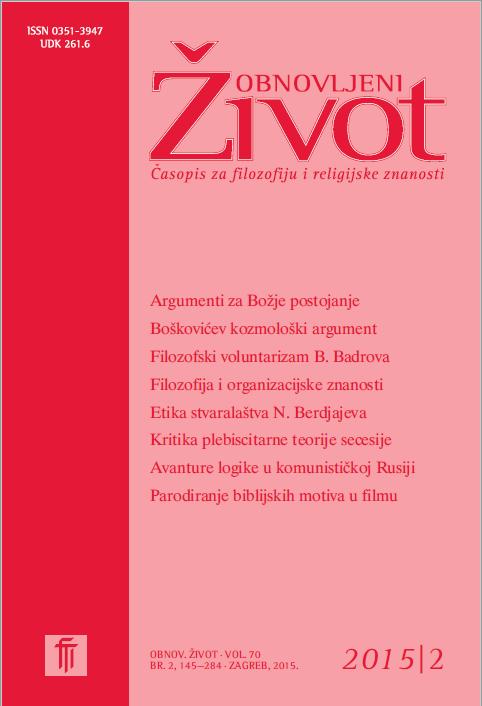The Notion of Contingency in Aquinas’ and Leibniz’s Arguments for God’s Existence
Keywords:
Thomas Aquinas, Leibniz, contingency, principle of sufficient reason, proofs of God’s existence, natural theologyAbstract
From the perspective of contemporary discourse in analytic natural theology the authors present an analysis and critical comparison between Aquinas’ „third way“ in proving God’s existence and Leibniz’s proof from contingency. They argue that Aquinas’ „third way“ and Leibniz’s argument differ in the principle by means of which each derives a theistically relevant conclusion. They explain the manner in which these proofs differ in their treatment of the problem of infinite regress; they demonstrate that these two arguments are singular, and therefore to criticize one does not mean to criticize the other, and finally they defend the position that both arguments are valid and plausible. The authors put a special focus on the role of the principle of actual difference between essence and existence for Aquinas’, and on the principle of sufficient reason for Leibniz’s theistically relevant conclusion.
Downloads
Published
Issue
Section
License
Jednom prihvaćeni članak obvezuje autora da ga ne smije objaviti drugdje bez dozvole uredništva, a i tada samo uz bilješku da je objavljen prvi put u Obnovljenom životu. Uredništvo će obavijestiti autora o prihvaćanju ili neprihvaćanju članka za objavljivanje.
Članci objavljeni u časopisu se, uz prikladno navođenje izvora, smiju besplatno koristiti u obrazovne i druge nekomercijalne svrhe.


